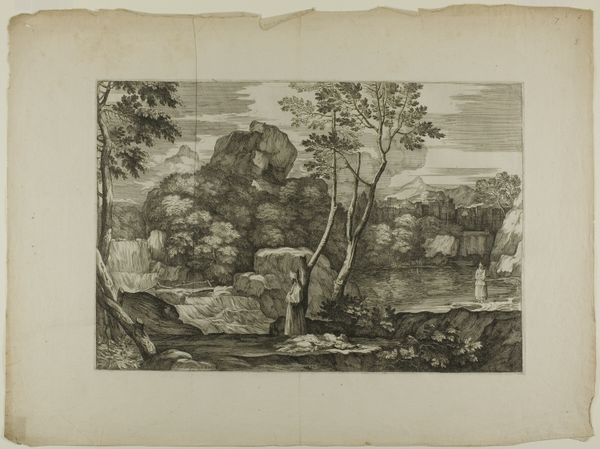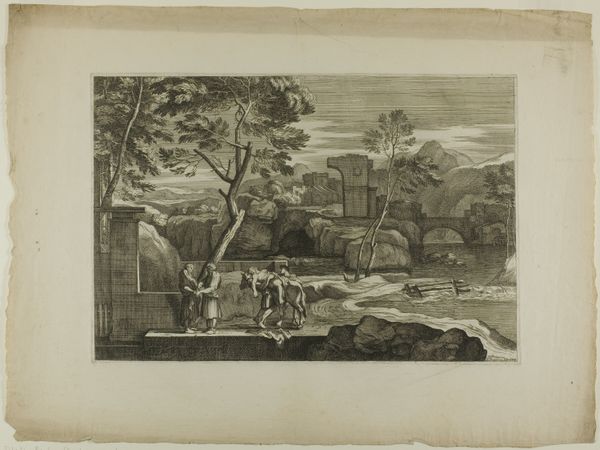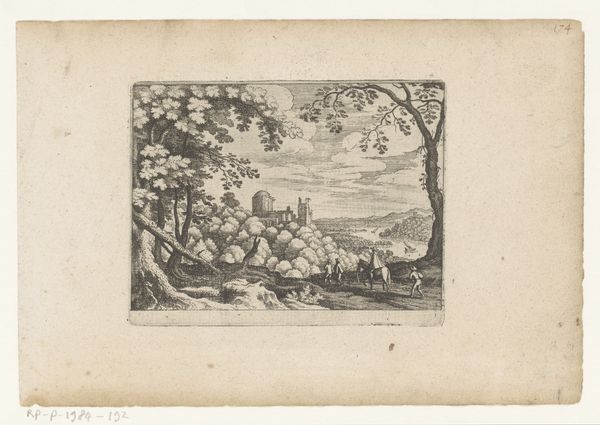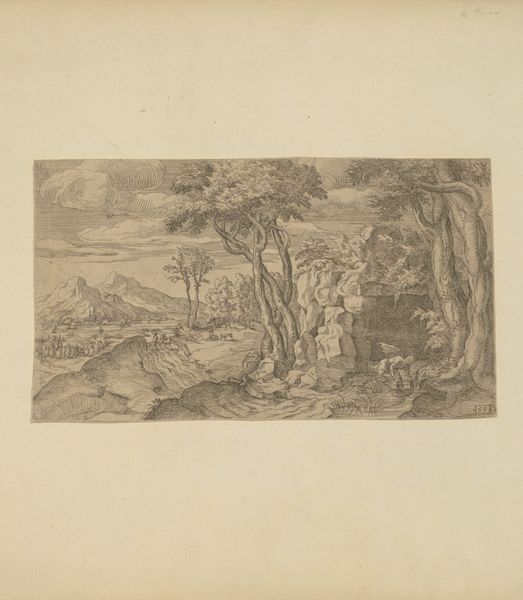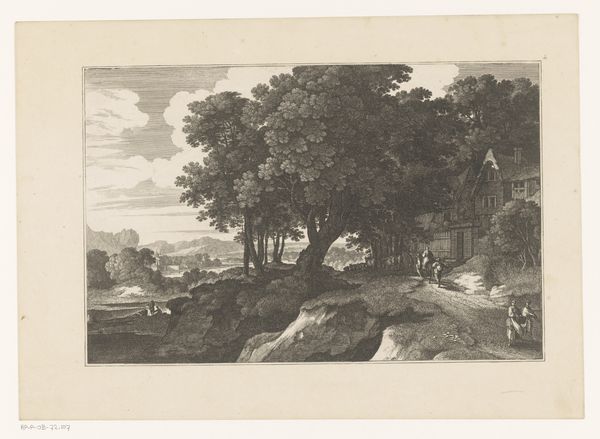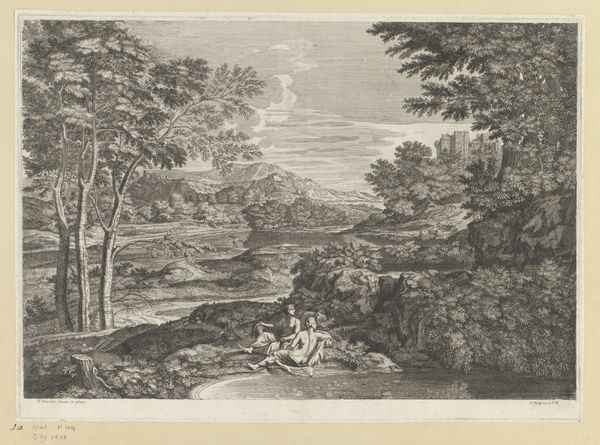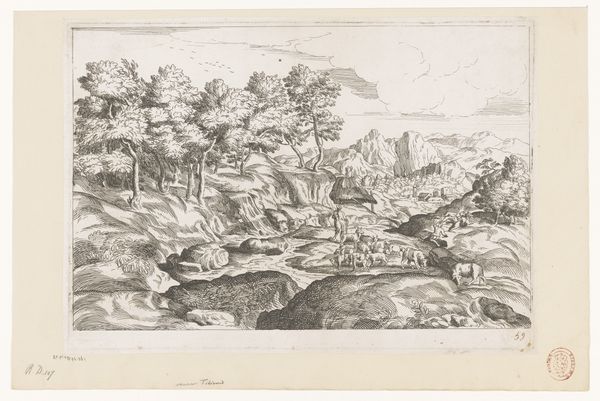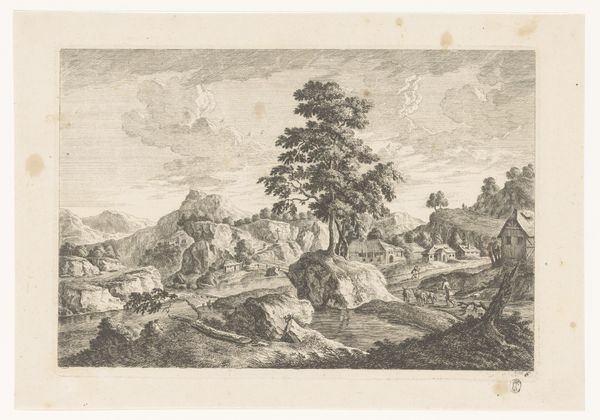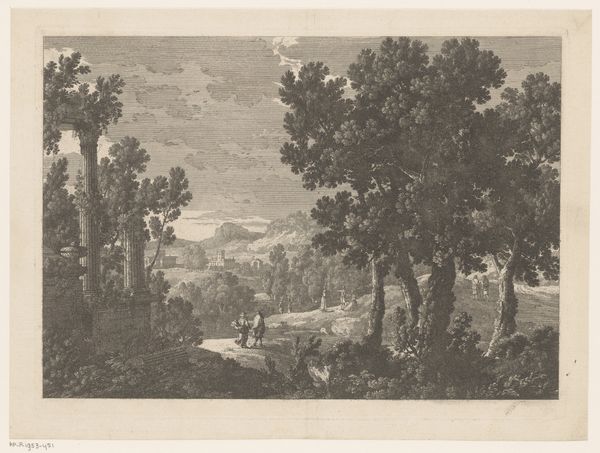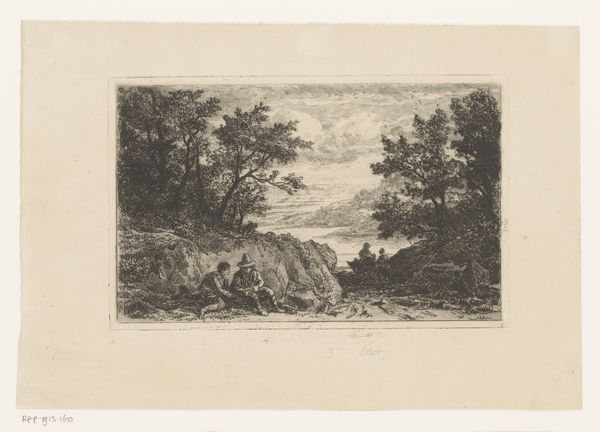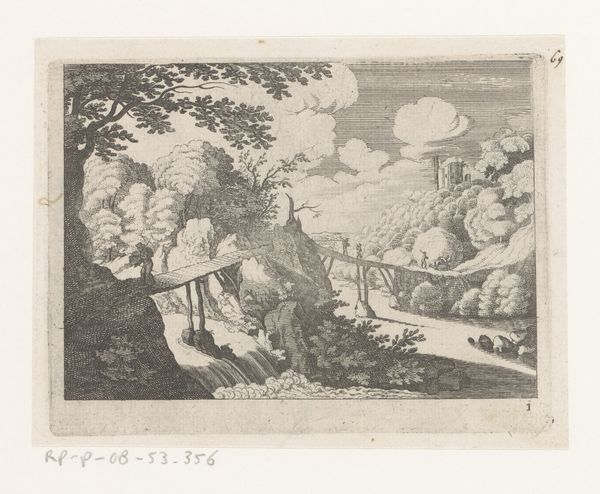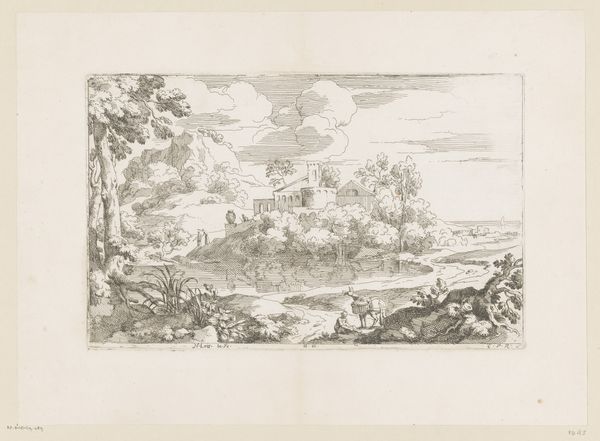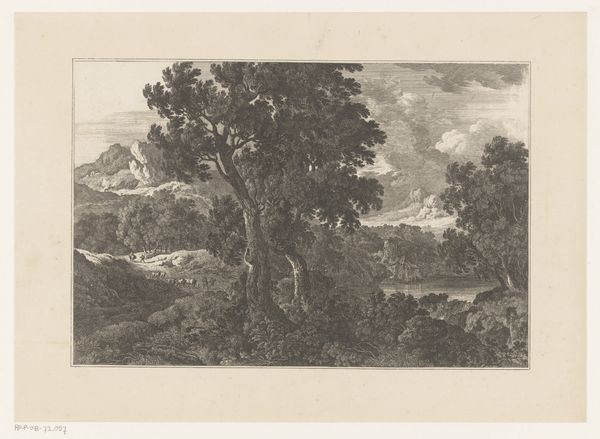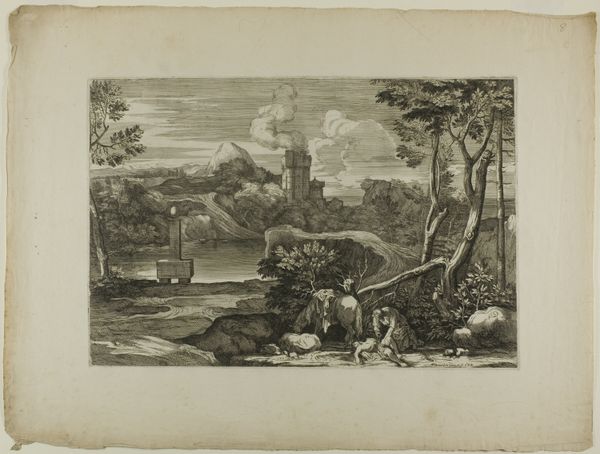
Landscape with Three Brigands and Their Victim 1668 - 1671
0:00
0:00
drawing, print, etching, paper
#
drawing
#
narrative-art
#
baroque
# print
#
etching
#
landscape
#
figuration
#
paper
#
form
#
history-painting
Dimensions: 296 × 435 mm (plate); 443 × 565 mm (sheet)
Copyright: Public Domain
Sebastien Bourdon created this etching, “Landscape with Three Brigands and Their Victim,” in France sometime in the mid-17th century. It depicts a scene of violence within an otherwise picturesque landscape, a fashionable theme during this period. The image's meaning is created through the visual codes of its time, referencing both classical ideals of landscape and the gritty realities of 17th-century life. France, under the Bourbon monarchy, was a society deeply stratified by class, with stark disparities in wealth and power. Bourdon's choice to depict brigands, outlaws operating on the margins of society, might be read as a commentary on the social inequalities of his time. Analyzing such an image requires research into the popular imagery, literature, and social conditions of 17th-century France. Only then can we fully understand Bourdon's contribution to the ongoing dialogue about power, justice, and the human condition.
Comments
No comments
Be the first to comment and join the conversation on the ultimate creative platform.
